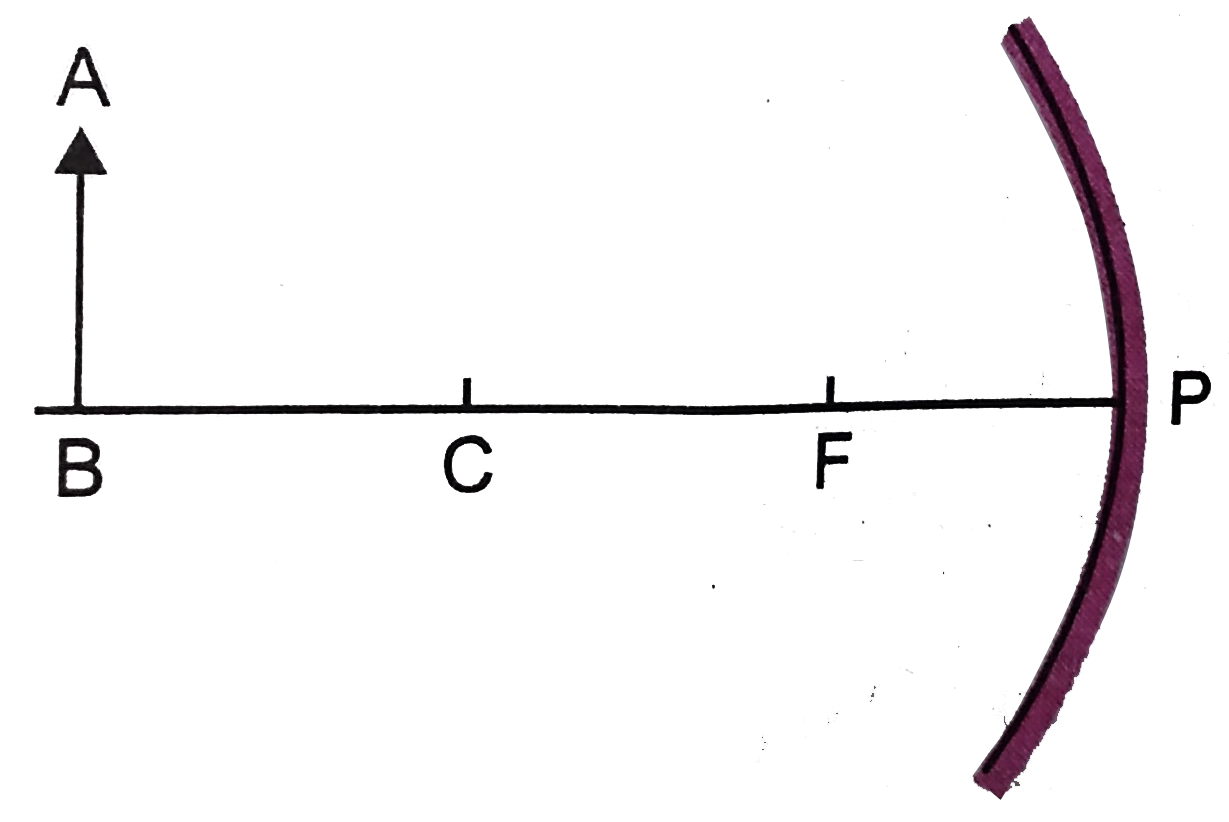Complete Solutions to CHAPTER PRACTICE TEST of chapter RAY OPTICS AND OPTICAL INSTRUMENTS of Class 12 book with complete answers and questions
| Class 12 | PHYSICS |
| Chapter | RAY OPTICS AND OPTICAL INSTRUMENTS |
| MODERN PUBLICATION | CHAPTER PRACTICE TEST |
| Number Of Questions | 14 |
| Academic Year | 2023-24 |
What is the position of the object for which the image formed by a concave mirror is virtual, erect and magnified ?
View SolutionHow will the focal length of a concave mirror change if the wavelength of the light falling on the mirror is made twice ?
View SolutionA biconcave lens made of a transparent material of refractive index 1.25 is immersed in water of refractive index 1.33. Will the lens behave as a converging or a diverging lens? Give reason.
View SolutionThe relation between angle of incidence `i`, angle of prism `A` and angle of minimum deviation for a triangular prism is.
View SolutionDefine inverting prism.
View SolutionAn object `AB` is kept in front of a concave mirror as shown in Fig.

(i) Complete the ray diagram showing the image formation of the object.
(ii) How will the position and intensity of the image be affected surface is painted black ?
View SolutionHow does angle of deviation vary with the angle of incidence in case of prism ? What is the angle of minimum deviation?
View SolutionWhy does the Sun appear reddish at the time of sunset ?
View SolutionIn an astronomical telescope, the distance between the objective lens and eyepiece is 20 cm. In normal adjustment, the magnifying power of the telescope is 15. Find the focal length of the objectives lens.
View SolutionWhy the mirrors used in search lights are parabolic, not concave spherical?
View SolutionDraw a schematic diagram of a single optical fibre structure. Explain briefly how an optical fibre is fabricated. Describe in brief, the mechanism of propagation of light signal through an optical fibre.
View SolutionWhat is the difference between the priamry and secondary rainbow? What are the conditions to observe a rainbow?
View SolutionExplain the phenomenon of refraction through prism. Derive the following relation between refractive index and minimum deviation.
(i) `anglei+angle2=A+angledelta`
(ii) `mu=(sin(A+delta_(m))//2)/(sinA//2)`
View SolutionA ray of light passes through an equilateral glass prism in such a manner that the angle of incidence is equal to the angle of emergence and each of these angles is equal to 3/4 of the angle of the prism. The angle of deviation is
View Solution
CHAPTER PRACTICE TEST questions and complete solutions for chapter RAY OPTICS AND OPTICAL INSTRUMENTS of MODERN PUBLISHERS PHYSICS (HINGLISH) of Class 12
All Exercises from MODERN PUBLICATION Class 12 PHYSICS RAY OPTICS AND OPTICAL INSTRUMENTS
- CHAPTER PRACTICE TEST
- Conceptual Questions
- Higher Order Thinking Skills & Advanced Level (QUESTIONS WITH ANSWERS)
- NCERT (EXemplar Problems Obejective Questions) (Multiple Choice Questions (Type-I)
- NCERT (EXemplar Problems Obejective Questions) (Multiple Choice Questions (Type-II)
- NCERT (Exemplar Problems Subjective Questions) (Very Short Answer Type Questions)
- NCERT FILE SOLVED (TEXT BOOK EXERCISES)
- OBJECTIVE TYPE QUESTIONS (A. MULTIPLE CHOICE QUESTIONS)
- OBJECTIVE TYPE QUESTIONS (ASSERTION REASON TYPE QUESTIONS)
- OBJECTIVE TYPE QUESTIONS (B. MULTIPLE CHOICE QUESTIONS)
- OBJECTIVE TYPE QUESTIONS (C. MULTIPLE CHOICE QUESTIONS)
- OBJECTIVE TYPE QUESTIONS (D. MULTIPLE CHOICE QUESTIONS)
- OBJECTIVE TYPE QUESTIONS (INTEGER TYPE QUESTIONS)
- OBJECTIVE TYPE QUESTIONS (JEE (ADVANCED) FOR IIT ENTRANCE)
- OBJECTIVE TYPE QUESTIONS (JEE (MAIN) & OTHER STATE BOARDS FOR ENGINEERING ENTRANCE)
- OBJECTIVE TYPE QUESTIONS (MATCHING TYPE QUESTIONS)
- OBJECTIVE TYPE QUESTIONS (MATRIX MATCH TYPE QUESTIONS)
- PRACTICE PROBLEMS (1)
- PRACTICE PROBLEMS (10)
- PRACTICE PROBLEMS (11)
- PRACTICE PROBLEMS (2)
- PRACTICE PROBLEMS (3)
- PRACTICE PROBLEMS (4)
- PRACTICE PROBLEMS (5)
- PRACTICE PROBLEMS (6)
- PRACTICE PROBLEMS (7)
- PRACTICE PROBLEMS (8)
- PRACTICE PROBLEMS (9)
- Revision Exercises (Additional Questions)
- Revision Exercises (Fill in the Blanks)
- Revision Exercises (Long Answer Questions)
- Revision Exercises (Numerical Problems)
- Revision Exercises (Short Answer Questions)
- Revision Exercises (Very Short Answer Questions)
- SOLVED EXAMPLES
- Tough & Tricky (PROBLEMS)